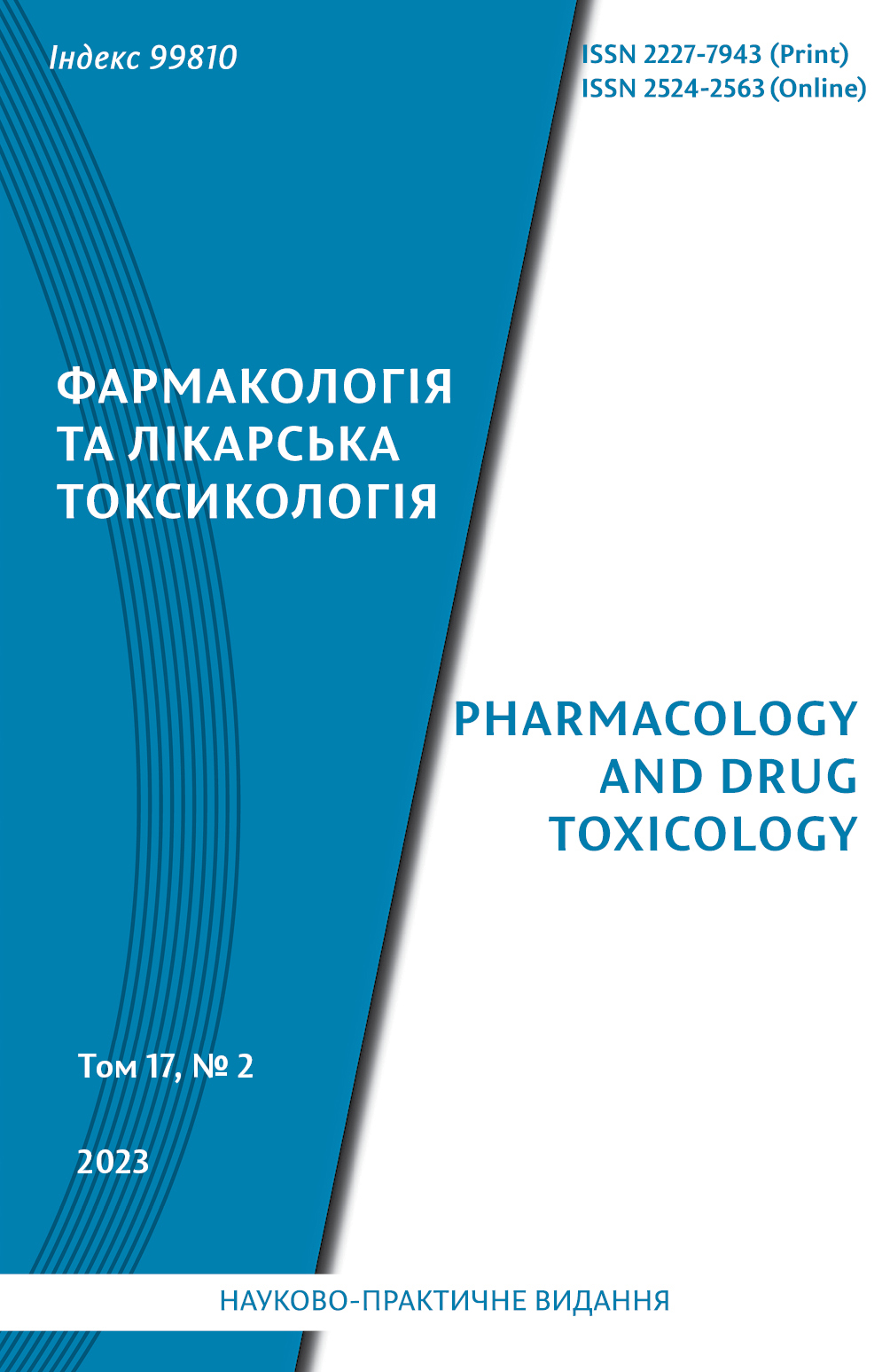Abstract
The purpose of the study was to investigate the antioxidant activity of the thick extract of Tribulus terrestris L. (TETT) in vitro and in vivo under the model of toxic tetrachloromethane hepatitis in rats.
Experiments were conducted on 96 sexually mature purebred white rats 180–200 g, divided into 4 groups. A thick extract of threshed grass from the fruits Tribulus terrestris L. was obtained by extraction with 50 % ethanol in ratio raw material:solvent (1:10) followed by its evaporation and thickening. Study of the antioxidant effect of TETT in concentrations of 5, 10, 15, 20 μg/ml was carried out in vitro in a model system of yolk lipoproteins. The degree of oxidative modification of proteins in vitro was determined by reaction of oxidized aminoacid residues with 2,4-dinitrophenylhydrazine. Antioxidant activity of TETT at a dose of 150 mg/kg in comparison with Karsyl (100 mg/kg) was studied in vivo under the model of acute toxic liver injury in rats induced by tetrachloromethane. Balance between oxidizing processes and antiradical protection in animals was evaluated by content of lipid peroxidation products, by superoxide dismutase, catalase, glutathione reductase activities and by reduced glutathione and α-tocopherol contents. The levels of ALT and AST activities were determined in the blood serum of animals. The functional condition of the liver was assessed by the rate of bile secretion and the concentration of bile acids and cholesterol in it.
According to the results of the research, pronounced antioxidant properties of the TETT in vitro and in vivo on the models of toxic tetrachloromethane hepatitis in rats have been established. It is shown that TETT in the range from 5.0 μg/ml to 20.0 μg/ml has a direct, сoncentrations dependent antioxidant effect on the processes of peroxidation of lipids and proteins in vitro.
On the model of toxic tetrachloromethane hepatitis in rats TETT at a dose of 150 mg/kg contributes to the preservation of functional activity and natural reserves of the antioxidant system, reduces indicators of cytolysis and restores indicators of bile formation and biliary function of the liver.
It was concluded that the effectiveness of the herbal remedy TETT in the conditions of toxic hepatitis is not inferior, and in terms of its stabilizing effect on some indicators of the functional state of the liver, surpasses the hepatoprotective properties of Karsyl at a dose of 100 mg/kg.
